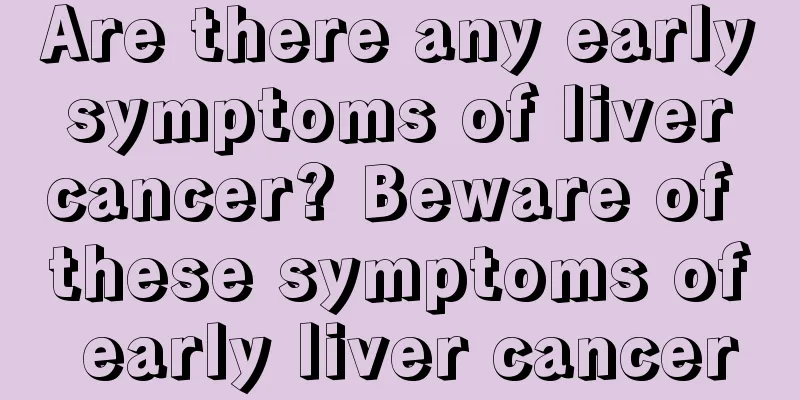Why does my child keep moving when sleeping

|
Children often move when they sleep because they are very restless when they sleep. A quiet environment, comfortable smell, pleasant music and appropriate temperature are all key factors that affect children's sleep. Sometimes, restless sleep may also be a reaction to being hungry or needing to wear diapers. Try to feel what's going on with your child and solve it in a timely manner, so that both the child and the parents can get a good night's sleep. Normal babies are relatively quiet and comfortable when they sleep, their breathing is even and without any sound, and sometimes some interesting expressions appear on their little faces. However, if the baby has the following conditions, parents should pay great attention to it. Symptom 1: The baby is sweating profusely when just falling asleep or about to wake up. Expert reminder: It can be said that it is normal for most babies to sweat at night. However, if you are sweating profusely and have other symptoms of discomfort, you should pay close attention, strengthen care, and go to the hospital for examination and treatment if necessary. For example, if a baby has a square head, late teething, or late closure of the fontanelle, he or she may be suffering from rickets. Symptom 2: The baby is irritable before going to bed at night, and his body becomes dry and his cheeks become red after falling asleep. His breathing becomes rapid, and his pulse rate increases to more than 110 beats per minute. Experts warn: This indicates that the baby is about to have a fever. You should pay attention to whether your baby has cold symptoms or diarrhea symptoms, and also make sure to keep him hydrated. If the baby really has symptoms of fever, physical cooling methods such as alcohol wiping should be adopted. Symptom three: The baby cries while sleeping, often shakes his head and scratches his ears, and sometimes has a fever. Experts warn: The baby may be suffering from otitis externa, eczema or otitis media. You should check the baby's ear canal for redness or swelling, and whether there are red spots on the skin. If so, send the baby to the hospital for diagnosis and treatment in time. Symptom 4: The baby's limbs shake while sleeping. Experts remind: This is generally caused by excessive fatigue during the day, so there is no need to worry. It should be noted that it is a normal reaction for babies to tremble when they hear loud noises while sleeping. On the contrary, if they have no reaction and like to sleep normally, be careful that they may be deaf. Symptom 5: The baby keeps chewing after falling asleep. Experts warn: The baby may have ascariasis, or may have eaten too much during the day and have indigestion. You can go to the hospital for a check-up. If it is ascariasis, you can use special anthelmintics for babies to eliminate it. If ascariasis is ruled out, you should arrange the baby's diet reasonably. Symptom 6: The baby's fingers or toes twitch and swell after falling asleep. Experts remind: At this time, parents should carefully check the baby's fingers to see if they are entangled with hair or other fibers, or if there are signs of mosquito bites. Symptom 7: The baby cannot sleep soundly and often tosses and turns. Experts remind: In fact, it is quite common for babies to roll over in bed after falling asleep. Sometimes an uncomfortable quilt or a quilt that is too thick will affect the baby's sleep quality. Some parents are afraid that their children will feel cold when they sleep, so they let them sleep with their clothes on. The children feel uncomfortable and roll around. Some parents are always worried that their children do not eat enough, so they let them eat a lot before going to bed at night. As a result, the children's stomachs always feel bloated and uncomfortable after going to bed, so they cannot sleep well. Symptom 8: Babies often cry suddenly and loudly after falling asleep. Experts remind: This is medically known as infant night terrors. If the child is not sick, it is usually caused by adverse stimulation during the day, such as fright, fatigue, etc. So don't scare your children and keep them calm and happy. In short, babies are still in a period where they cannot express their likes and dislikes. In addition to arranging enough sleep time for them, parents should observe their abnormal changes while they are sleeping to prevent delays in the disease. Babies aged 8 to 9 months usually sleep 2 to 3 times during the day, lasting 2 to 6 hours, and sleep 10 hours at night, for a total of 14 to 15 hours. Too little sleep will affect the baby's physical development; too much sleep will affect the activity time and delay the baby's intellectual development. |
<<: What's wrong with renal polyps
>>: What are the effects and functions of moxibustion on the face?
Recommend
What are the symptoms of lung cancer? What are the specific manifestations of lung cancer?
There are no obvious symptoms in the early stage:...
Life expectancy of early ovarian cancer
The length of life expectancy of patients with ea...
What are the clinical manifestations of ovarian cysts?
As the name suggests, ovarian cyst is a gynecolog...
What are the benefits of electric moxibustion instrument
Moxibustion is a traditional Chinese medicine the...
What to do if a girl has dark armpits
Girls are more aware of dark armpits. The pores i...
What symptoms can poor sleep cause?
In fact, there are many people who have poor slee...
The function of uterus warming underwear
Many mothers may eat uterus warming underwear dur...
Passion fruit storage method
Summer is here, and many people like to use lemon...
How can I make my nails look good if they are genetically ugly
If you have carefully observed our nails, you wil...
Transmission routes of endometrial cancer
There are many friends around us who suffer from ...
Causes of strabismus_What causes strabismus
If you feel that the other person cannot look you...
Differential diagnosis of renal cancer in TCM
Kidney cancer is a malignant tumor disease that s...
Can leeks and cabbage be used to make dumplings?
The deliciousness of dumplings makes people never...
How to remove yellow scale from toilet bowl: a good woman will give you some tips
We all know that toilets are generally made of ce...
What are the hazards of light wave rehabilitation therapy device
More and more people pay attention to physical co...









